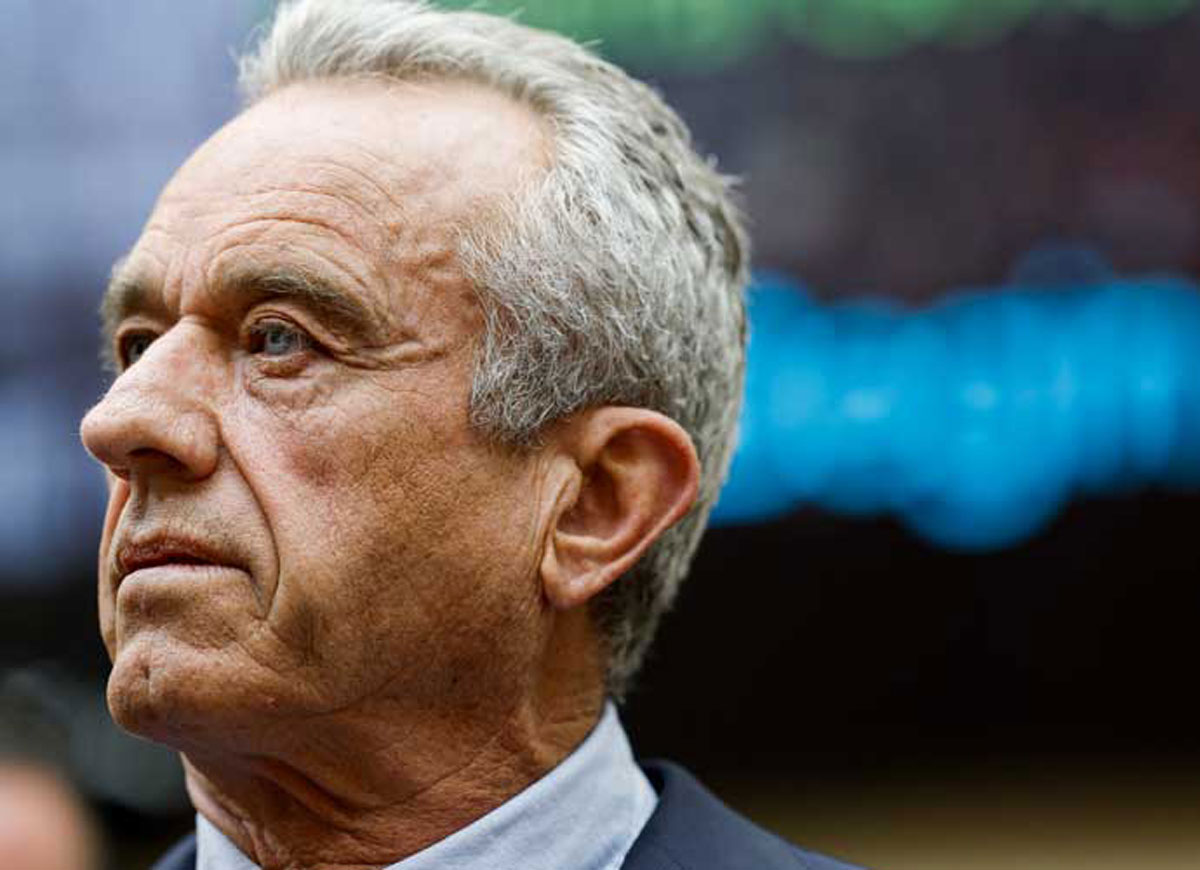Measles Cases Reach Highest Number In U.S. In Past Three Decades
Since the beginning of the year, the U.S. has had 1,299 confirmed measles cases as of July 11, the largest annual total in 33 years, according to data from the Johns Hopkins University International Vaccine Access Center.
With confirmed cases in 38 states and the District of Columbia, this is a concerning public health crisis for a highly contagious, vaccine-preventable disease that was declared officially eradicated in the country in 2000.
These numbers have surpassed the outbreak in 2019, which had been the highest case total since 1992, when officials reported more than 2,100 infections, according to data from the Johns Hopkins University Center for Outbreak Response Innovation (CORI).
Robert F. Kennedy Jr., the Health and Human Services Secretary, who is an anti-vaccine activist, has offered contradictory messages around the measles vaccines.
Subscribe to our free weekly newsletter!
A week of political news in your in-box.
We find the news you need to know, so you don't have to.
He first downplayed the outbreak and did not promote support for the vaccine, but now has supported a statement that said, “with clear guidance that vaccines are the most effective way to prevent measles,” HHS spokesperson Andrew Nixon said. “At the same time, we recognize that some individuals and communities across the U.S. may choose not to vaccinate. Our commitment is to support all families — regardless of their vaccination status — in avoiding hospitalization and serious complications from measles, including death.”
The CDC has not held any media briefings on the outbreak, unlike during previous large outbreaks of the disease.
Claire Hannan, executive director of the Association of Immunization Managers, a national organization of state and local immunization officials, shares how “devastating” this outbreak is.
“We worked so hard to eliminate the threat of measles and to keep it at bay,” she said.
There have been at least 155 people hospitalized and three measles-related deaths, according to authorities. Those who died were a man in New Mexico and two otherwise healthy kids in Texas, all unvaccinated. Between 2001 and 2024, however, there were only three deaths due to measles, according to the Centers for Disease Control and Prevention.
Roughly 92% of cases in the U.S. were reported in unvaccinated individuals or those with an unreported vaccination status, according to the CDC.
The largest part of the outbreak has been in West Texas, with more than 750 cases recorded since late January, although the true total is expected to be much higher. Data shows the outbreak has spread to local states, but it has slowed.
There are clusters in other parts of the country unrelated to this outbreak, typically associated with an unvaccinated person who has traveled outside the country.
Despite the official elimination, cases still occur, but large outbreaks of 50 or more cases have become more common in recent years. Especially in small, culturally diverse communities with limited access to vaccinations.
The U.S. is at risk of losing its elimination status if this outbreak of linked cases continues for more than 12 months, according to public health experts.
“It’s a harbinger of things to come,” said Eric Ball, a pediatrician who heads the California chapter of the American Academy of Pediatrics. “Once we see a resurgence of measles, we know that other diseases are going to come behind it.”
This uptick in outbreaks is directly connected to misinformation surrounding vaccinations, leading to distrust and increased numbers of unvaccinated people. This misinformation caused the 1,274 cases in 2019, according to public health officials and researchers.
Trust in public health measures, primarily with vaccines, has continued to decline and is divided along political lines.
In 2019, the national rate for the MMR vaccination among kindergarteners was a little above 95%, but it is now under 93%, according to the CDC.
Even if states have a high vaccination coverage, there are small groups of unvaccinated people who typically live together. Measles is extremely contagious and leads to high infection rates among people without immunity, often spreading for days before symptoms appear.
In a recent study, it is predicted that the U.S. could have millions of measles cases over the next quarter-century.
In March, the Harvard T.H. Chan School of Public Health and the de Beaumont Foundation conducted a poll that found 79% of adults believe children should be required to be vaccinated so that their children can attend school.
Following the coronavirus pandemic, fewer than 50% of people have confidence in federal health agencies to carry out their responsibilities, according to a poll by the healthcare think tank KFF.
Get the most-revealing celebrity conversations with the uInterview podcast!







Leave a comment